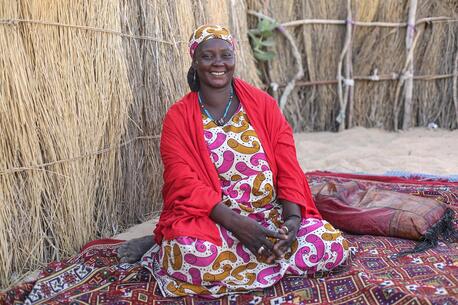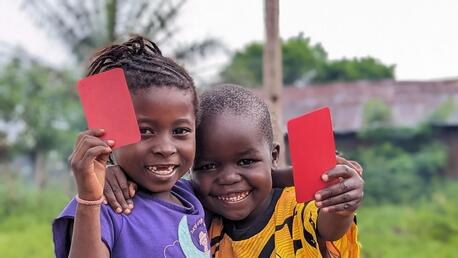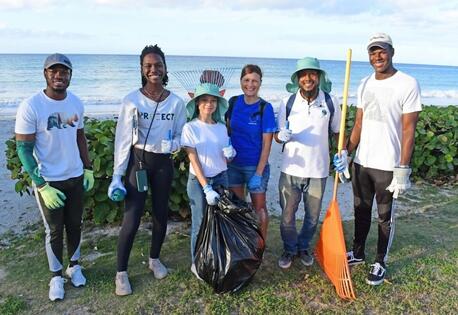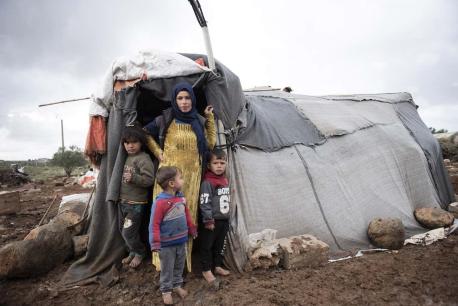
A Year of COVID-19 Inflames Displaced Syrian Kids' Wounds of War
This month, we observe two grave milestones: ten years of civil war in Syria and one year since the coronavirus pandemic began. The twin crises have exponentially compounded threats to displaced Syrian children's health, nutrition, education, emotional well-being and safety.
After ten years of crisis, Syrian children remain at the center of the tragedy. Some 2.6 million have been displaced inside Syria; another 2.5 million live as refugees in neighboring countries. The yearlong COVID-19 pandemic has made a horrific situation worse. War, COVID-19 and the pandemic's economic impact have increased the number of children inside Syria who need relief by 20 percent. In the countries hosting Syria's refugees, COVID-19 and other crises have brought down GDP growth by 15 percent, a loss that could plunge even more people into poverty. Those most at risk are the self-employed — many refugees — who eke out a living in the informal workforce. In all, nearly 90 percent of Syria's children need humanitarian assistance.
Exercise your power to help Syrian children live safer lives.
Some 2.6 million have been displaced inside Syria; another 2.5 million live as refugees in neighboring countries
Children born during the conflict — like Heyam's (top) — have no knowledge of life in the formerly middle-income country — let alone of peace. After their house was destroyed eight years ago, Heyam and her husband fled the fighting in Deir Ez-zor, the largest city in northeast Syria, to a makeshift camp in Dara'a. They have raised Anhar, 7, Nibal, 3, and Bilal, 5, (from left to right) in a tent there while working at a nearby farm.
Their income puts bread on the table, but a tent is no place to raise a family. Heyam has spent the winter battling the elements, and when it rains, the pregnant 21-year-old gets very little sleep. "I spend the night emptying buckets I've spread across the room to collect water seeping in from the roof," she says. Many children are out of school at the camp because their families can't afford the cost of uniforms, school supplies or transportation. But, says Heyam, there's another reason she's kept her children home this past winter: "They don't have enough clothes to keep them warm."
Over the past decade, UNICEF has been there, providing Syrian children and their families immediate relief while addressing their long-term needs. In 2020, as the COVID-19 pandemic raged worldwide, UNICEF expanded its relief for Syria's children against a backdrop of violence and economic collapse.
Now, as countries begin receiving and administering COVID-19 vaccines, Syria is seeing a steep increase in cases and deaths since August, over 10 percent of which are in camps for internally displaced persons (IDPs).
“Inside Syria right now, we have 16,000 confirmed cases through laboratories and 1,000 associated deaths,” Ted Chaiban, UNICEF Regional Director for the Middle East and North Africa, said at a recent briefing on COVID-19's effect on families in temporary settlements and camps. “But the number of COVID-19 cases continues to rise, and there are issues with testing capacity, so the numbers are higher than that.”
UNICEF has taken comprehensive measures to protect all families and children both inside Syria and in the countries hosting its refugees. UNICEF has reached 55 million people with COVID-19 prevention messaging to promote physical distancing and masks and provided emergency water and hygiene supplies to prevent the spread of infection. The pandemic caused a drop in the number of people seeking health services. But by providing personal protective equipment (PPE) to frontline health workers, UNICEF convinced parents it was safe to get their children screened for malnutrition and receive lifesaving vaccines.
"I’m very glad to say that immunization has resumed pre–COVID-19 levels, so families are taking their children to be immunized," reported Chaiban. "We need to do the same with maternal and newborn services, so as women deliver, they are following up with health centers. There are ways of doing that safely, and that’s why we put such a heavy emphasis on delivery of PPE kits to front line workers."
How to help Syria's children
UNICEF has made significant gains in protecting Syria's most vulnerable families and children during the pandemic. But a funding shortfall of over 70 percent could jeopardize continued progress. You can help Syria's children by sending lifesaving essentials through UNICEF Inspired Gifts. The collection offers various water and sanitation supplies, along with COVID kits for kids to keep children healthy, learning and safe. For just $20, you can send 100 bars of soap so families in crowded, unsanitary camps can stay healthy by washing their hands. UNICEF Inspired Gifts can also help protect health workers. As vaccination campaigns gear up in Syria — and in Jordan, Lebanon and Turkey, all of which have included refugees in their vaccination plans — PPE for the health workers who are getting shots in people's arms will be crucial to ending the pandemic.
Help give children the health care they deserve.
Attacks on infrastructure have forced families to rely on unsafe water, exposing kids to deadly diseases
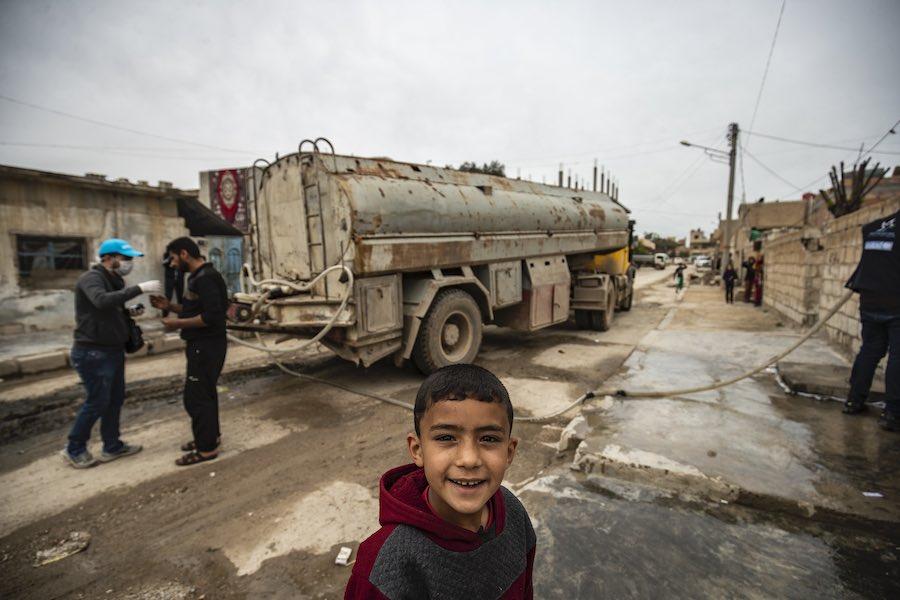
Safe water is critical to fighting the spread of COVID-19. But over the last decade, many of Syria's water facilities have been damaged or destroyed. UNICEF and partners have already repaired many, and stands ready to deliver immediate relief. Early this year in northeastern Syria, ongoing power shortages brought down the Alouk water station, which pipes safe water to 460,000 people. Given the high number of COVID-19 cases in the region, the service disruptions posed humanitarian challenges, especially for the overcrowded camps it serves. Here, a boy poses in front of one of the water trucks that UNICEF has been using to supply water to 20 shelters, communities and such makeshift camps as Al-Hol, where over 60,000 displaced people live.
Over a decade of war, UNICEF has worked hard to keep safe water flowing. But Syrian families need supplies on hand for when they must do without. By purchasing a UNICEF Inspired Gift from the water and sanitation collection, you can help. All it takes is $38 to send 10,000 water purification tablets to provide over 10,500 gallons of safe water to children and their families in an emergency.
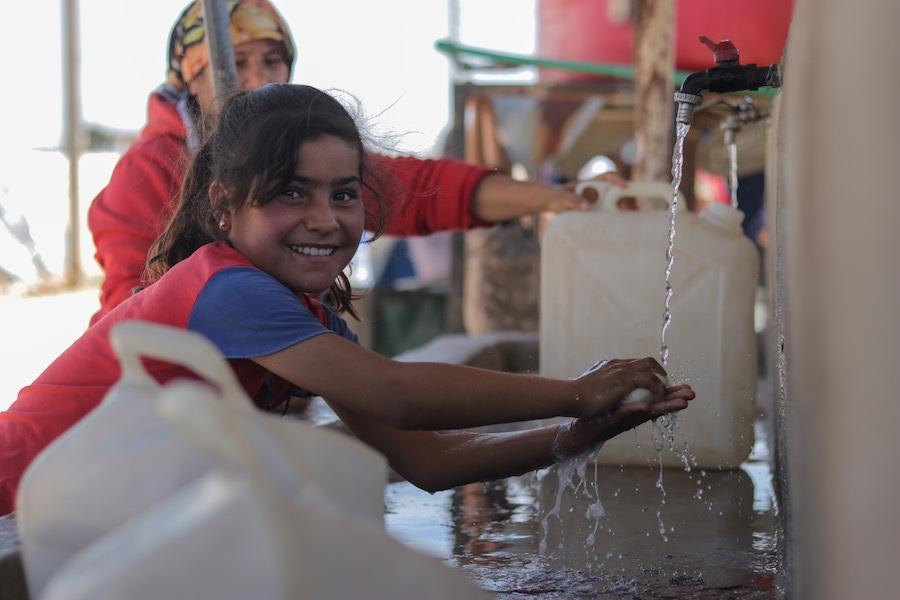
To encourage handwashing, UNICEF-supported volunteers have been helping families learn how to protect themselves from COVID-19 with hygiene kits distributed to families and children, like 9-year-old Jihan (above), who lives at the Fafin camp in northern rural Aleppo. “I learned that we have to wash our hands thoroughly for 20 seconds to protect ourselves against coronavirus,” she says. The one-month supply of hygiene essentials that the UNICEF Inspired Gifts collection offers for $53 contains soap, detergent, shampoo, dishwashing liquid and other products no family should be without.
Together we can help children get the clean water they need for a healthier future.
At the end of 2020, the cost of an average grocery basket of food was up 236 percent over the previous year
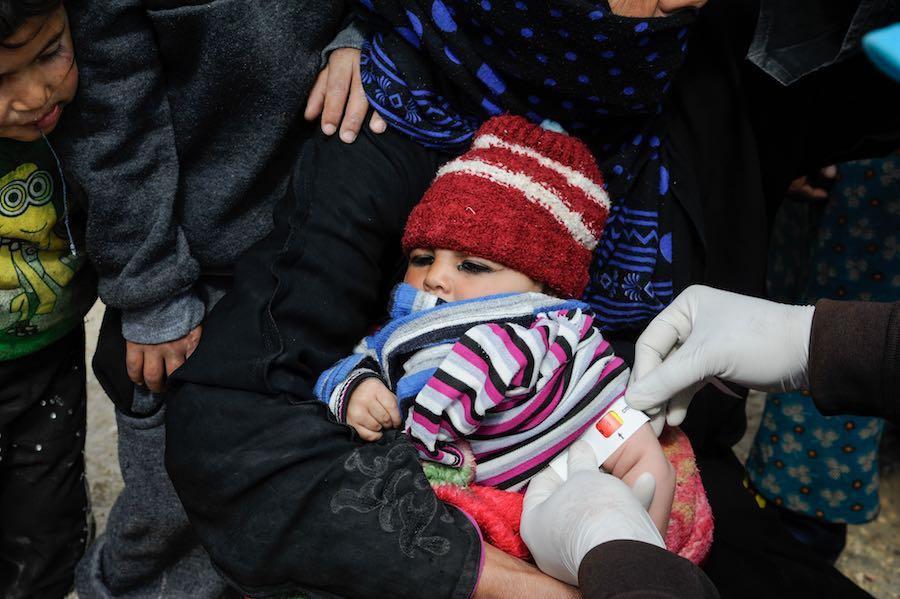
Two in three families in Syria cannot meet their basic needs. The cost of an average basket of food increased by 236 percent over the past year, and the Syrian pound dropped 78 percent.
In northeastern Syria, UNICEF and partners' mobile nutrition teams are working in temporary settlements to screen children like the baby above. She is one of more than 8,000 displaced people who live in the Ar-Raqqa Mahmoudli camp in northern central Syria. The nutrition team visits three times a week to screen children and follow up on those treated.
UNICEF has fought to maintain children’s access to health and nutrition services throughout the pandemic, efforts you can support by purchasing an Inspired Gift of nutrition. Gifts range from a two-month's supply of Ready-to-Use Therapeutic Food (RUTF) for one child ($55), therapeutic milk ($92) and high energy biscuits ($12) that provide all the nutrients children need if families find themselves forced to live without safe water for cooking.
Help give children the nutrition they need for a healthier future.
Nearly 2.45 million children in Syria and 750,000 of those living in neighboring countries are out of school
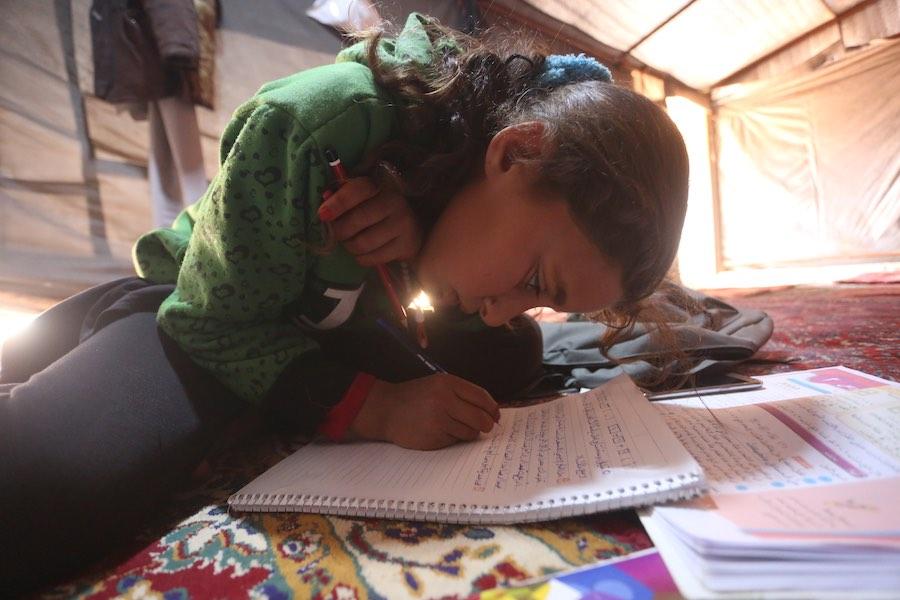
Across Syria, COVID-19 restrictions interrupted millions of children's schooling. Girls like 9-year-old Maria (above), who lives with her family in the Kili IDP camp in rural Idlib, has had to learn from home. Here, Maria listens to a pre-recorded lesson on her father's smartphone in her family's tent. “I like getting the lessons this way, I like to keep learning,” says Maria. “But I really would like to get back to the school to meet my friends and play with them.”
The UNICEF Inspired Gifts education collection offers an array of supplies that have helped children like Maria continue their educations. For just $60, you can send all the essentials children have needed during the pandemic to stay healthy and keep up with their studies: water purifying tablets, soap, exercise books, pencils, a sealable water bucket and a solar-powered radio to connect them with educational broadcasting.
“Despite the incredible challenges they face, Syria’s children and young people show us the definition of perseverance and resolve,” said Chaiban. “Their determination to learn, overcome the odds and build a better future is admirable. Over the past decade, UNICEF has been supporting the Syrian people and host countries through one of the most devastating wars in recent history. We will continue to be there for Syria’s children and the host communities, and we count on the international community’s generous support.”
UNICEF won't stop until every child can get to school.
Photos from top: © UNICEF/ Syria 2020/Hasan Belal; © UNICEF/UNI322660/Souleiman; © UNICEF/UNI334452/Almatar; © UNICEF/UNI318714/Wasel; © UNICEF/UNI322056/Suleiman
